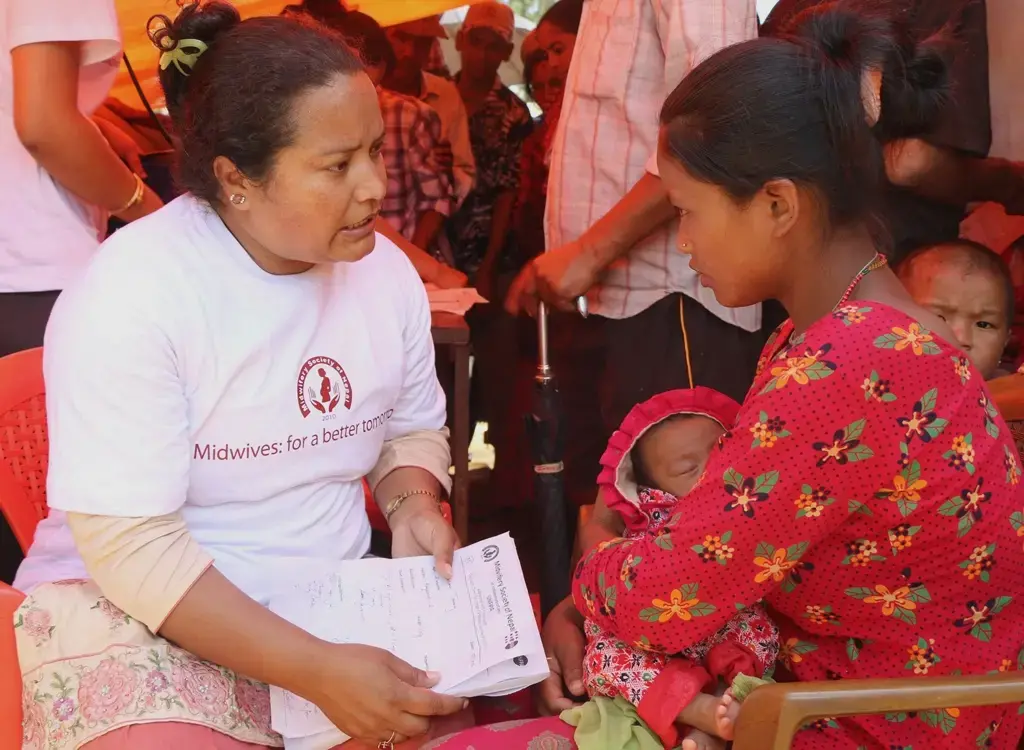Midwives – and people with midwifery skills – are the main caregivers for women and their newborns during pregnancy, labour, childbirth and in the post-delivery period. Skilled midwives are the difference between life and death for hundreds of thousands of women and infants every year.
Yet there are massive midwife shortages around the world. UNFPA, the UN reproductive health and rights agency, works at the global, regional and national level to scale up midwifery services, supporting training efforts and providing supplies and materials to midwifery institutions.
In Nepal, the government launched the Bachelor in Midwifery program on 5 January 2017, honoring its long-term strategy of making midwifery an independent profession by producing professional midwives.
Well-trained midwives together with a recruitment, deployment and retention plan could help avert roughly two thirds of all maternal and newborn deaths. They could also deliver up to 87 percent of all essential sexual, reproductive, maternal and newborn health services. Midwives are one of the most cost-effective and culturally sensitive path to achieving universal health care, if practicing in an enabling environment and supported by regulations.
Nepal has made tremendous progress in reducing maternal mortality from 901 per 100,000 live births in 1990 to 258 in 2015, according to the Maternal Mortality Estimation Inter-Agency Group comprising WHO, UNICEF, UNFPA and the World Bank. This being said, many women continue to die in childbirth, either at home without access to skilled birth attendance or in health facilities providing sub-standard obstetric care. Furthermore, inequity in access and utilization of health care services has resulted in significant disparities in health conditions across different geographical areas, ethnic groups, educational and wealth status.
Therefore the quality of maternal and newborn health services available at health institutions needs to be strengthened. Such quality issues are further compounded by the lack of professional midwives as a separate cadre of health care professionals in accordance with global standards.
The United Nations Population Fund has been working closely with the Ministry of Health, Nepal Nursing Council, Midwifery Society of Nepal and other partners in advancing midwifery education since 2009.



